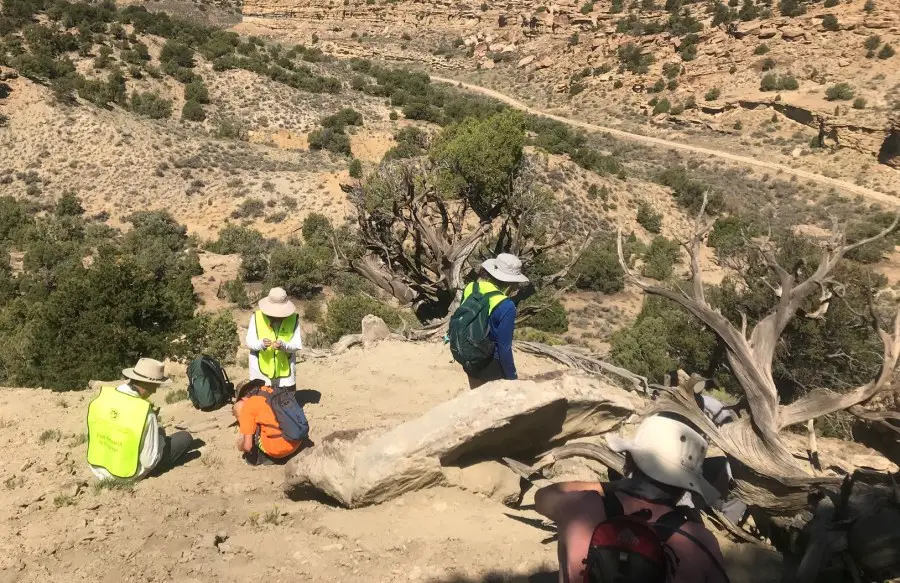DENVER (KDVR) — Paleontologists unearthed a fossil in the northwest corner of Colorado and discovered a new mammal that lived when dinosaurs roamed the state millions of years ago.
The team of researchers, led by the University of Colorado Boulder Professor of Geological Sciences Jaelyn Eberle, discovered a piece of jawbone and three molar teeth while working near Rangely, which is about 18 miles from the Utah state line.
A study of their findings was published in the journal PLOS ONE on Wednesday.
“Colorado is a great place to find fossils, but mammals from this time period tend to be pretty rare,” Eberle said. “So it’s really neat to see this slice of time preserved in Colorado.”
Scientists discover new mammal species in Colorado that gives clues on diversity
John Foster and ReBecca Hunt-Foster, co-authors of the study, have been visiting the area to dig up fossils every summer for some 15 years. Foster saw the fossil, about one inch long, emerge from a slab of sandstone that he collected from the site in 2016, according to a CU Boulder Today article.
“I said, ‘Holy cow, that’s huge,’” said Foster, a scientist at the Utah Field House of Natural History State Park Museum in Vernal, Utah.
Their discovery, named Heleocola piceanus, is estimated to have lived in Colorado during the Cretaceous period 70 to 75 million years ago when a large inland sea covered much of the American West. According to the CU article, the fossils were found where the water and the land would have met. Hunt-Foster said the region may have looked like Louisiana.
The mammal is a cousin to modern-day marsupials. Scientists believe it weighed about two pounds or more and was the size of a muskrat, which Eberle said is “surprisingly large” compared to most mammals that lived during the Cretaceous period. Before the dinosaurs went extinct 66 million years ago, scientists believe most mammals were the size of modern-day mice and rats.
Though the animal was small compared to the dinosaurs it lived with, the discovery helps scientists understand the ecosystem and what Colorado was like millions of years ago.
Copyright 2024 Nexstar Media, Inc. All rights reserved. This material may not be published, broadcast, rewritten, or redistributed.
For the latest news, weather, sports, and streaming video, head to FOX31 Denver.


Leave a Comment